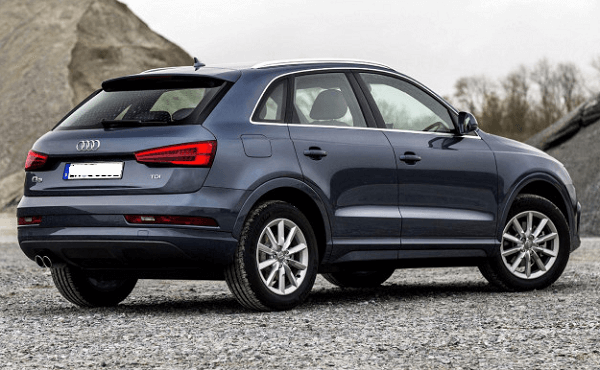Audi Q3: Years To Avoid And Why

Audi Q3: Years to Avoid and Why
The Audi Q3, a compact luxury SUV, has carved a niche for itself in the competitive market. Its stylish design, premium interior, and capable performance have attracted many buyers. However, like any vehicle, the Q3 has its share of issues, and certain model years have been plagued with more problems than others. This article delves into the years to avoid when considering an Audi Q3, highlighting the common problems and their potential costs.
Understanding the Audi Q3 Generations:
Before we dive into specific years, it’s essential to understand the Audi Q3’s generational timeline:
- First Generation (2012-2018): This generation, internally known as the 8U, was the first iteration of the Q3. It was available with a variety of engine options, including gasoline, diesel, and a plug-in hybrid.
- Second Generation (2019-Present): The 8V generation brought a complete redesign, featuring a sharper exterior, a more luxurious interior, and advanced technology. It also offered a wider range of engine choices, including a more powerful TFSI engine.
Years to Avoid:
First Generation (2012-2018):
- 2012: The first year of production often experiences teething problems as manufacturers refine their processes. While the 2012 Q3 is not known for significant issues, it’s generally advisable to steer clear of the first model year of any vehicle.
- 2013-2015: This period saw a number of reported issues with the Q3’s transmission, particularly the dual-clutch S tronic gearbox. Reports include jerky shifts, transmission slipping, and even complete failure. These problems can be costly to repair, potentially requiring a complete transmission replacement.
- 2014-2016: The 2014-2016 models experienced a common issue with the engine’s timing chain tensioner. This could lead to premature wear on the timing chain, potentially causing engine damage. The repair involves replacing the tensioner and timing chain, a costly and complex process.
- 2015-2016: These years saw a higher number of reported issues with the Q3’s electrical system, including problems with the instrument cluster, infotainment system, and various sensors. These problems can be intermittent and frustrating to diagnose, often requiring multiple visits to the dealership.
- 2017-2018: While the 2017-2018 models were generally more reliable than their predecessors, they still had their share of issues. Reports included faulty turbochargers, problems with the air conditioning system, and persistent oil leaks.
Second Generation (2019-Present):
- 2019: The first year of the second generation, while generally well-received, saw a few reports of issues with the infotainment system, including software glitches and touchscreen responsiveness problems.
- 2020-2021: These years experienced a higher number of reports regarding the Q3’s engine, particularly the 2.0 TFSI engine. Some owners reported issues with the engine’s timing chain, similar to those found in the first generation. Additionally, there were reports of premature wear on the turbocharger, leading to reduced power and increased fuel consumption.
Common Problems and Their Solutions:
Transmission Issues:
- Symptoms: Jerky shifts, slipping transmission, complete transmission failure.
- Cause: The dual-clutch S tronic gearbox in some Q3 models has been known for its reliability issues. The problem often stems from a faulty mechatronic unit or clutch wear.
- Solution: Replacing the mechatronic unit or the entire transmission can be costly, but it’s necessary to restore proper function.
Timing Chain Tensioner Problems:
- Symptoms: Engine rattling or knocking noises, loss of power, engine misfire.
- Cause: A faulty timing chain tensioner can cause premature wear on the timing chain, potentially leading to catastrophic engine failure.
- Solution: Replacing the tensioner and timing chain is essential to prevent further damage.
Electrical System Issues:
- Symptoms: Intermittent problems with the instrument cluster, infotainment system, sensors, or other electrical components.
- Cause: These issues can be caused by faulty wiring, connectors, or control modules.
- Solution: Diagnosing and repairing these problems can be time-consuming and costly, often requiring multiple visits to the dealership.
Turbocharger Issues:
- Symptoms: Loss of power, reduced fuel efficiency, engine smoke.
- Cause: Premature wear or failure of the turbocharger can lead to these issues.
- Solution: Replacing the turbocharger is necessary to restore engine performance.
Infotainment System Issues:
- Symptoms: Software glitches, touchscreen responsiveness problems, freezing or crashing.
- Cause: These issues can be caused by software bugs or hardware malfunctions.
- Solution: Software updates can often resolve software glitches, while hardware replacements may be necessary for more serious problems.
Cost Considerations:
Repairing the issues mentioned above can be expensive, especially if the problem involves major components like the transmission, engine, or turbocharger. In some cases, the cost of repairs may exceed the vehicle’s value, making it financially unwise to continue ownership.
How to Avoid Problems:
- Thorough Pre-Purchase Inspection: Before purchasing a used Q3, have a qualified mechanic perform a comprehensive inspection to identify any potential problems.
- Research the Vehicle History: Use services like Carfax or AutoCheck to obtain the vehicle’s history report, which may reveal any past accidents, repairs, or recalls.
- Read Owner Reviews: Check online forums and review websites to see what other Q3 owners have experienced.
- Consider a Certified Pre-Owned (CPO) Vehicle: CPO vehicles often come with a warranty, providing some peace of mind.
Conclusion:
While the Audi Q3 is a stylish and capable SUV, certain model years have been plagued with more problems than others. By avoiding the years highlighted above and conducting thorough research, you can increase your chances of finding a reliable and enjoyable Q3. Remember, a pre-purchase inspection is crucial to identify any potential issues and to make an informed decision.


![Best & Worst Audi Q3 Years [2015-2024 Models] - Car Smite](https://www.carsmite.com/wp-content/uploads/2024/04/The-Best-and-Worst-Years-For-Audi-Q3.png)




